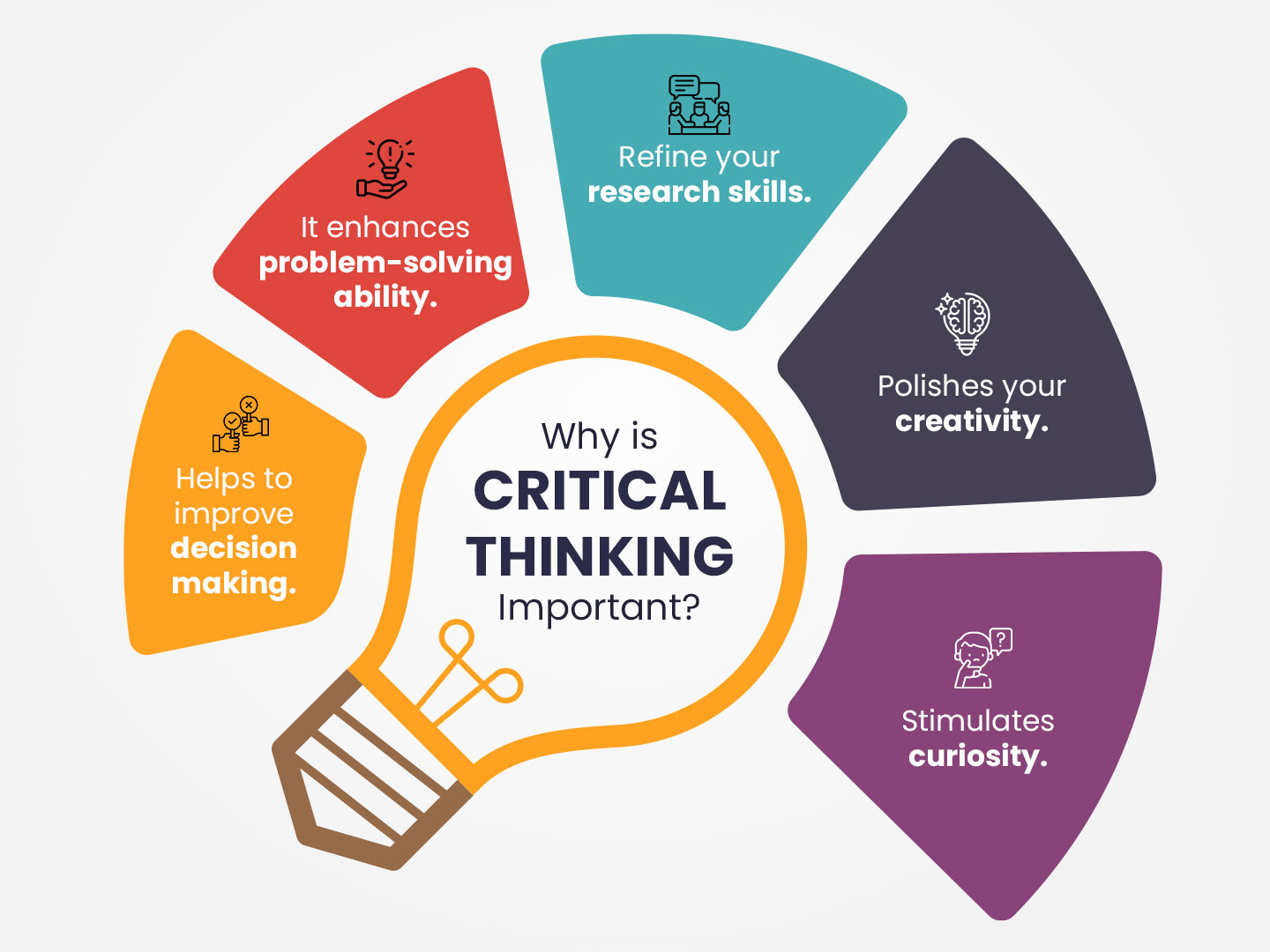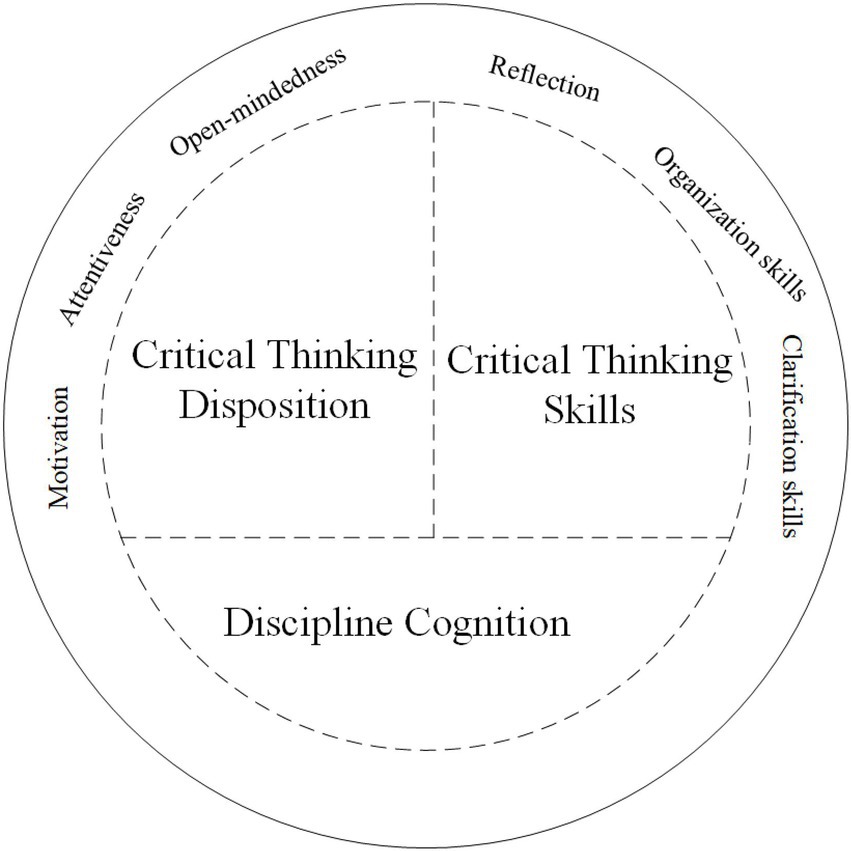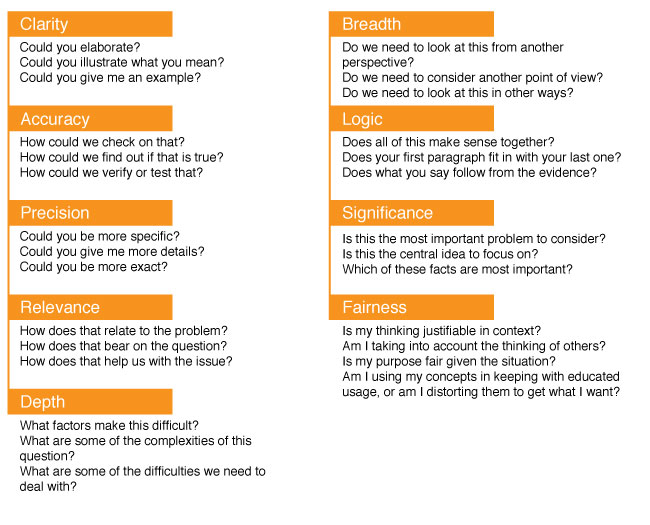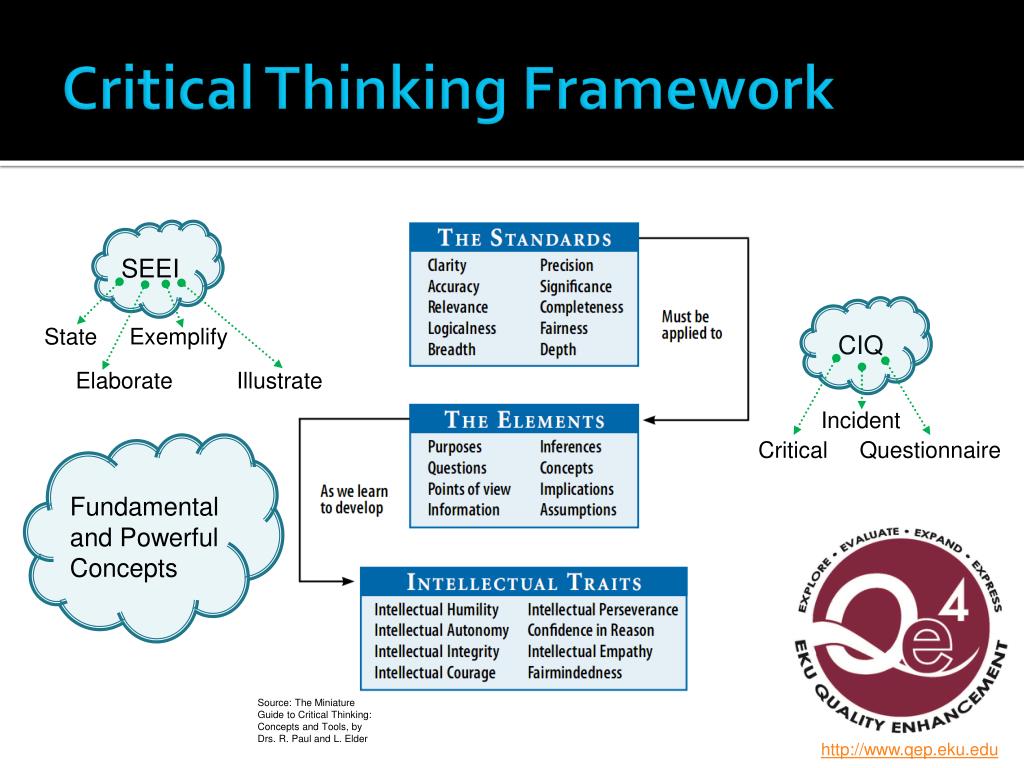
😂 Critical thinking framework. Critical Thinking Frameworks. 20190207
41 42 v Frameworks for Thinking This handbook focuses on the thinking processes necessary for learning. It provides descriptions and evaluations of 42 major frameworks including Bloom's taxonomy, de Bono's lateral and parallel thinking tools, Gardner's theory of multiple intelligences and Paul's model of critical thinking.

Critical Reading Through Collaborative … 参考書
Critical thinking is that mode of thinking - about any subject, content, or problem — in which the thinker improves the quality of his or her thinking by skillfully taking charge of the structures inherent in thinking and imposing intellectual standards upon them. (Paul and Elder, 2001). The Paul-Elder framework has three components:

Frontiers Constructing a critical thinking evaluation framework for
5 What is We have identified three Core Areas within Critical Thinking: Within these Core Areas we break things down further, defining the Components that make up each Core Area: • Understanding and analysing ideas and arguments refers to a learner's ability to identify and analyse information in order to recognise patterns and relationships.

Critical thinking skills chart. Awesome visual with lots of suggestions
3 6-Step Critical Thinking Framework: Applying the Paul-Elder Model Universal Intellectual Standards The universal intellectual standards are the bread and butter of all critical thinking processes. These are used as basis for examining the quality of one's thoughts and reasonings. The 9 basic ones are as follows: Clarity - Can this be understood?

A critical thinking framework for understanding excellence in biologi…
Dwyer, Hogan, and Stewart proposed an integrative critical thinking framework for the twenty-first century that places memory, knowledge, and comprehension as foundational processes necessary for the successful application of critical thinking which involves analysis, evaluation, and inference. The Dwyer, Hogan, and Steward model also includes reflective judgment, as well as self-regulation.

Pin by denise spivey on Teaching Thoughts Teaching critical thinking
The critical thinking framework provides an efficient method for designers, design students, and researchers to evaluate arguments and ideas through rational reasoning. As a result, we eliminate biases, distractions, and similar factors that negatively affect our decisions and judgments.

🌈 What are some critical thinking skills. How to Develop Your Critical
Critical Thinking: Frameworks and Models for Teaching CC BY 4.0 Authors: Mansoor Fahim Samaneh Eslamdoost Tarbiat Modares University Abstract Developing critical thinking since the.

The Paul Elder Model Of Critical Thinking Gambaran
Critical thinking is a metacognitive process that, through purposeful, reflective judgement, increases the chances of producing a logical conclusion to an argument or solution to a problem. Instruction in critical thinking is becoming exceedingly important because it allows individuals to gain a more complex understanding of information they encounter and promotes good decision-making and.

The Logic Tree The Ultimate Critical Thinking Framework GLOBIS Insights
Active and skillful approach, evaluation, assessment, synthesis, and/or evaluation of information obtained from, or made by, observation, knowledge, reflection, acumen or conversation, as a guide to belief and action, requires the critical thinking process, which is why it's often used in education and academics.

Critical Thinking Skills Literacy Pathway
Critical thinking is the ability to effectively analyze information and form a judgment. To think critically, you must be aware of your own biases and assumptions when encountering information, and apply consistent standards when evaluating sources. Critical thinking skills help you to: Identify credible sources. Evaluate and respond to arguments.

5 Critical Thinking Skills to Use at Work (And How to Improve Them
1. History 2. Examples and Non-Examples 2.1 Dewey's Three Main Examples 2.2 Dewey's Other Examples 2.3 Further Examples 2.4 Non-examples 3. The Definition of Critical Thinking 4. Its Value 5. The Process of Thinking Critically 6. Components of the Process

I'm a Critical Thinker! The Transfigurist
The use of a single critical thinking framework is an important aspect of institution-wide critical thinking initiatives (Paul and Nosich, 1993; Paul, 2004). According to this view, critical thinking instruction should not be relegated to one or two disciplines or departments with discipline specific language and conceptualizations. Rather.

Systemic Change Requires Critical Thinking FAMVIN NewsEN
Critical Thinking Frameworks: Your Path to Analytical Excellence January 12, 2024 by Milton Campbell Jump to Section hide 1 Understanding Different Critical Thinking Frameworks 2 The Paul-Elder Model: A Holistic Approach to Critical Thinking 3 The RED Model: Break it Down to Think Clearly 4 Bloom's Taxonomy: From Knowledge to Evaluation 5 Wrap-Up

How to Apply PaulElder Critical Thinking Framework Designorate
The basics What is critical thinking? Critical thinking is the art of making clear, reasoned judgements based on interpreting, understanding, applying and synthesising evidence gathered from observation, reading and experimentation.

PPT Critical Thinking, Creative Thinking and Communication PowerPoint
Using these models, they developed the Critical Thinking Roadmap, a framework that breaks critical thinking down into four measurable phases: the ability to execute, synthesize, recommend, and.

ACER's critical thinking framework Download Scientific Diagram
Critical thinking is, very simply stated, the ability to analyze and evaluate information. Critical thinkers raise vital questions and problems, formulate them clearly, gather and assess relevant information, use abstract ideas, think open-mindedly, and communicate effectively with others.